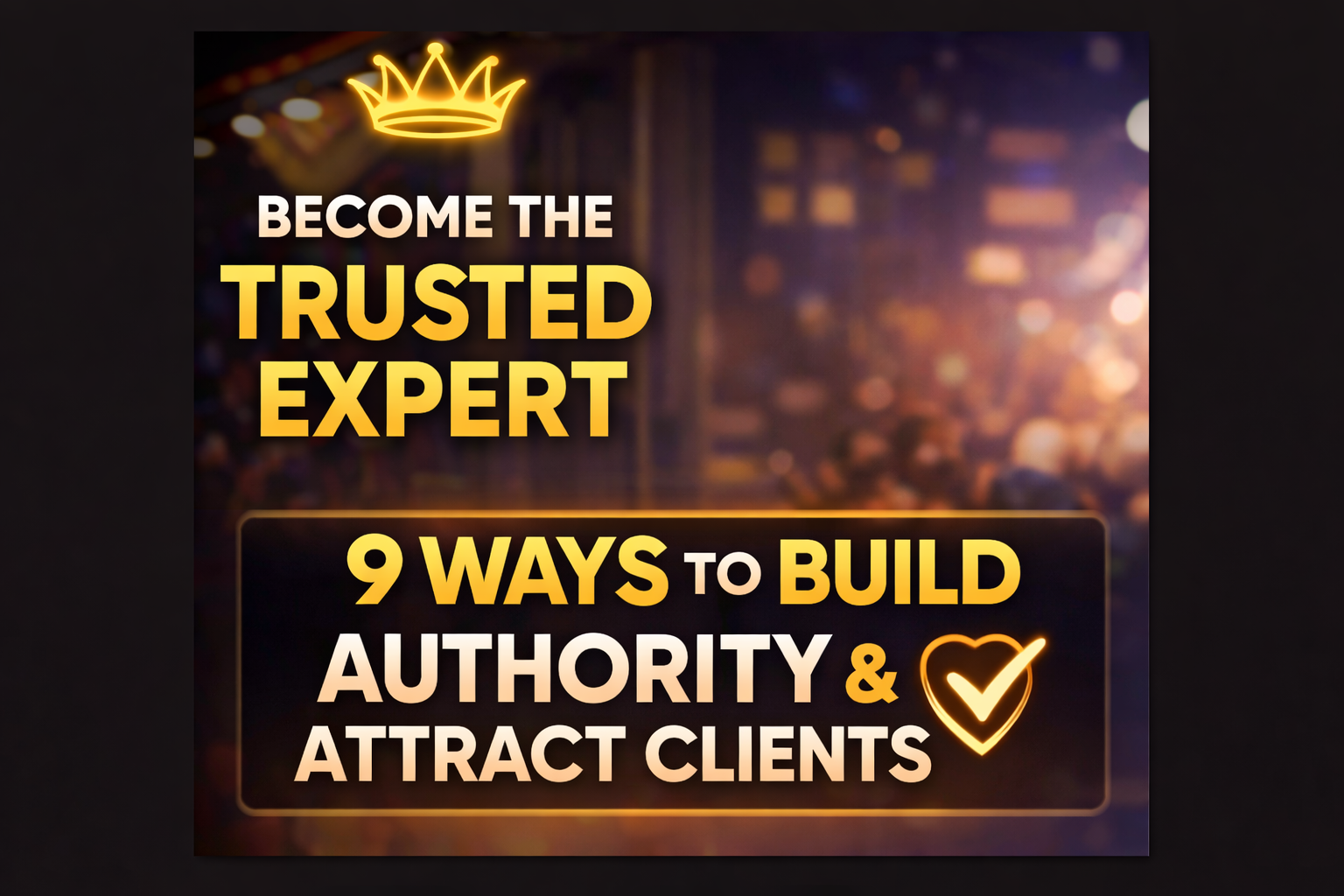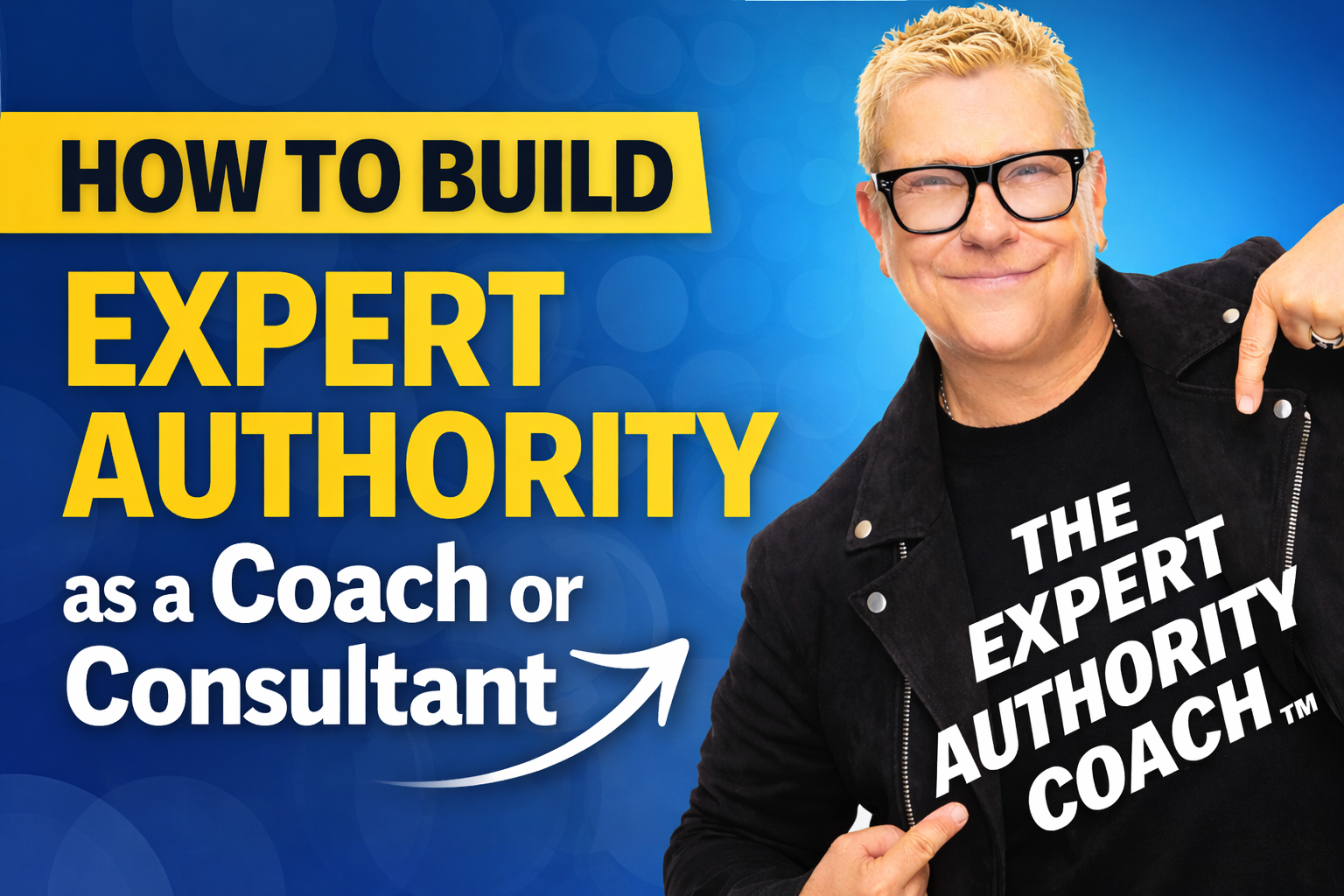Expert Authority: 9 Proven Ways to Build Visibility, Trust, and Clients (Without Posting More Content)
Written by Christine Blosdale - The Expert Authority Coach™
If you’re posting consistently but the phone still isn’t ringing, the problem isn’t effort—it’s strategy.
More content won’t fix a lack of visibility.
Expert authority does.
True expert authority means your ideal client recognises you, trusts you, and remembers you when they’re ready to buy. This guide breaks down nine practical, tested steps you can start using this week to turn attention into trust—and trust into clients.
1. Stop Equating Posting With Visibility
Posting often is not the same as being visible.
Vanity metrics: likes, views, reactions
Real visibility: recognition across platforms—social media, podcasts, referrals, local media, and conversations
If your audience only sees you once, they forget you.
Action step:
Choose three places your ideal client already hangs out and show up there consistently for the next 90 days.
2. Clarify Who You Serve—and What They Actually Want
Most messaging fails because it focuses on what you sell instead of what your client wants to buy.
Ask current or past clients:
“Why did you choose me?”
“What worried you most before working with me?”
Turn their answers into 2–3 outcome-driven benefit statements and use them everywhere.
Action step:
Update your homepage headline and social bio to reflect one clear result your client gets from working with you.
3. Build a Compact Media Kit That Doubles as Your Elevator Pitch
A media kit isn’t just for journalists. It’s your authority snapshot.
Include:
One professional headshot
A one-paragraph bio
Three signature outcomes you deliver
One notable credential or result
Your written bio should easily convert into a 20–30 second spoken pitch.
Action step:
Create a one-page PDF media kit and keep it ready to send after calls, meetings, and networking events.
4. Use Short, Authentic Video to Build Trust Fast
Video accelerates trust because people can see your face, hear your tone, and decide quickly if you’re “their person.”
What works best:
A strong hook in the first 3 seconds
One tip, one example, one takeaway
Short, consistent videos—not polished perfection
Action step:
Record three 60-second videos this week and post one per day for three days.
5. Invest in One Signature Headshot—and Use It Everywhere
Familiarity builds trust. Repetition creates recognition.
One strong image used consistently across platforms is one of the highest ROI branding decisions you can make.
Action step:
Book a professional headshot session and replace all profile images within one week.
6. Publish a Short Guide or Mini-Book to Demonstrate Expertise
You don’t need a 300-page book to establish authority.
A 20–60 page guide:
Positions you as the expert
Works as a lead magnet
Becomes a powerful networking and referral tool
Action step:
Draft a 10-chapter outline this week. Aim to complete the guide within two weeks.
7. Be a Guest on Podcasts and Local Media—Consistently
Borrowed audiences build credibility faster than any social algorithm.
Pitch:
One clear topic
Why their audience cares
One specific insight you’ll share
Action step:
Create a list of 20 podcasts, radio shows, or community publications and send five personalised pitches this month.
8. Create a Repeatable Content System (Create Once, Publish Many)
Authority grows when your message is consistent everywhere.
Simple repurposing workflow:
One 10-minute video
Three short clips
One blog post
Three social posts
Action step:
Choose one long-form piece this week and plan three derivative pieces to publish over the next two weeks.
9. Own a Memorable Title and Tagline
A distinctive title helps people remember—and repeat—who you are.
Add a qualifier that reflects your style or specialty
Keep taglines short (under eight words)
Action step:
Test two titles on social posts for one month and keep the one that sparks more conversations.
Common Visibility Mistakes That Kill Expert Authority
Posting generic, AI-written content without a point of view
Trying to copy someone else instead of owning your lane
Offering too many services and confusing buyers
Skipping the fundamentals: clear headline, consistent image, repeatable pitch
How to Measure If Your Expert Authority Is Growing
Short-term: more DMs, booked calls, podcast invitations
Medium-term: people recognise you before you introduce yourself
Long-term: inbound clients referencing your content, media, or guide
Expert Authority Is Built—Not Accidental
Visibility is a series of deliberate moves:
Clear messaging
Consistent image
Authentic delivery
Strategic distribution beyond social feeds
Pick one or two of these steps, commit to them for 90 days, and you’ll feel your expert authority begin to compound.
Ready to Accelerate Your Expert Authority?
If you want guidance, structure, and accountability instead of guessing your way forward, this is exactly what I help clients do inside my 90 Day Expert Authority Program.
👉 Start with a FREE Expert Authority Evaluation Call
Let’s assess what’s working, what’s missing, and what will move the needle fastest for you.
🔗 Book your free call here: ChatWithChristineB.com
And if you’re ready to commit to building visibility, trust, and authority over the next 90 days, explore the program here:
🔗 90DayExpertAuthority.com
You don’t need more content.
You need expert authority—and a strategy that converts it into clients.










